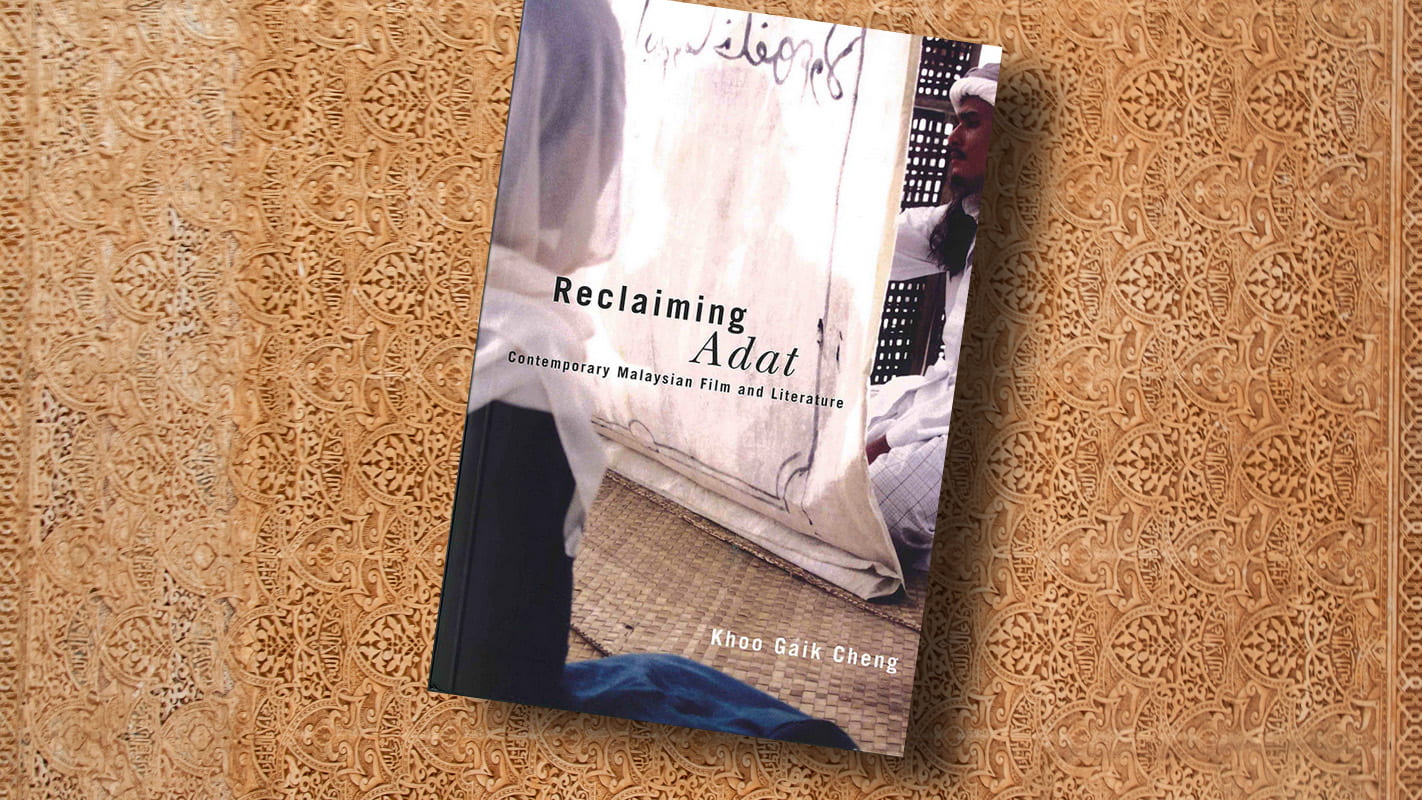By Diyanah Nasuha Binte Omar Bahri
Reclaiming Adat: Contemporary Malaysian Film and Literature is essential reading for those fascinated by the interplay between the arts and identity in Malaysia. This book dives deep into the socio-cultural, political, and identity complexities of modern-day Malaysia as expressed through the medium of film and literature.
The author, Khoo Gaik Cheng, is an Associate Professor in the Faculty of Arts at the University of Nottingham Malaysia and currently serves as the Director of the University’s Asia Research Institute. She earned her PhD in Interdisciplinary Studies from The University of British Columbia and has dedicated her career to teaching and research in cultural and film studies. Her book zeroes in on Malay films and select Malaysian Anglophone writers, reflecting her interest in exploring the intersections between gender, modernity, and national identity in Southeast Asian cultural production.
Khoo leads readers on an investigative journey into what it means to be modern and Muslim for Malaysia’s Malay urbanites and how Malayness is performed. She critically examines the works of Malaysian filmmakers and writers who have grappled with how modernity, in its many various forms, has impacted readings of Islam and its interconnections with adat. Adat refers to local customary laws, bearing animist and Hindu influences, that were in place prior to the arrival of Islam. The book consists of six chapters, starting with an overview, followed by five chapters that examine the ways in which Malaysian cultural intelligentsia have sought to subvert state-constructed ideological positions for women within the nation and reclaim their agency.
Through a post-colonial gender critique of selected “bumigeois” (what Khoo terms as “emergent middle-class Malays”) writers writing in English and Malay-language films, her interdisciplinary study applies post-colonial, gender, psychoanalytical, and socio-anthropological perspectives to shed light on how their cultural productions negotiate the complexities of modernity. Sparked by discussions surrounding the place of adat in Malaysia’s socio-cultural terrain— which intensified due to the mainstreaming of Islamic revivalism in the 1990s, driven by the growing influence of scripturalist and Arabic-influenced Islam in contrast to the more syncretic, indigenous form of Islam that existed in Malaysia for centuries — Malaysian cultural intelligentsia have turned to reclaiming adat as a tool to counter the conflicting ideological systems of resurgent Islam and Westernisation.
In sum, Reclaiming Adat: Contemporary Malaysian Film and Literature offers a compelling exploration of the interplay between gender, modernity, and nationhood in Malaysian cultural productions. It illuminates how adat is used to counteract Islamic discourse and globalisation, thus revealing the complexities of modern Malaysian culture and identity. By melding cultural theory with close textual analysis, the book contributes significantly to our understanding of Malaysia’s socio-political landscape. As such, Reclaiming Adat will interest scholars, students, and even general readers interested in Southeast Asian and cultural studies, film studies, gender studies, or those seeking to delve into the rich cultural tapestry of Malaysia.

